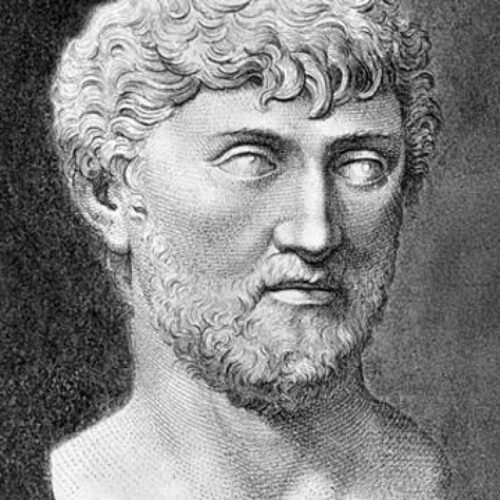

Titus Lucretius Carus was a Roman poet contemporary of Julius Caesar. Little is known of him apart from his name and his poem De Rerum Natura (On the Nature of Things) which nevertheless reveals much about his beliefs and his character.
The main purpose of the work was to free Gaius Memmius (to whom he dedicated the poem) and presumably all of humankind of superstition and the fear of death. His poem expounds the atomic theory of Democritus and the moral philosophy of Epicurus.
He argues against fear of gods/supernatural powers by demonstrating through observations and logical argument that the operations of the world can be accounted for entirely in terms of natural phenomena.
He argues against the fear of death by stating that death is the dissipation of a being’s material mind. Lucretius uses the analogy of a vessel, stating that the physical body is the vessel that holds both the mind and spirit of a human being. Neither the mind nor spirit can survive independent of the body. So, as a simple ceasing-to-be, death can be neither good nor bad for this being.
According to Lucretius, fear of death is a projection of terrors experienced in life, of pain that only a living (intact) mind can feel. Lucretius also puts forward the ‘symmetry argument’ against the fear of death. In it, he says that people who fear the prospect of eternal non-existence after death should think back to the eternity of non-existence before their birth, which they probably do not fear.

Why not agree to differ about the questions which no one denies to be all but insoluble, and become allies […]

Humanism is less concerned with what to believe than with how to live. The meaning it gives to life lies […]

Emilie Holyoake-Marsh, daughter of George Jacob Holyoake, was an activist for worker’s rights and women’s suffrage; an advocate of co-operation, […]

The… women on the early ALRA committee were similar in background and outlook. Most of them were active members of […]